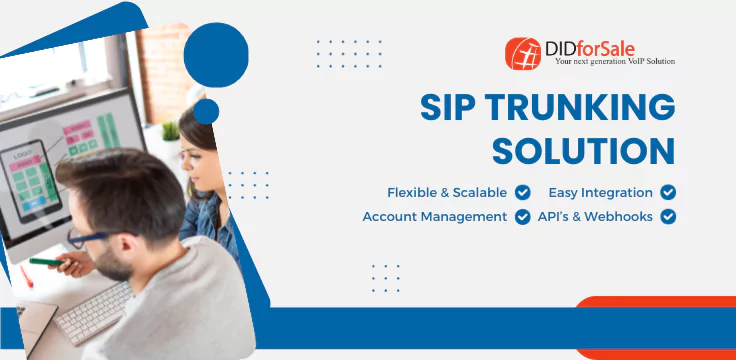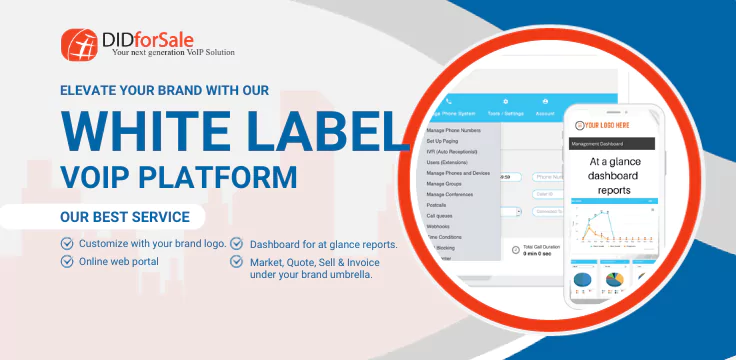A Guide on Making Money with VOIP (PDF Version)
A Guide on Making Money with VOIP
VoIP (voice over Internet protocol) is one of the foundations of communication in the future as the demand for mobile devices capable of connecting through it continues to grow. In fact, VOIP users will increase to around a billion people.[1] While you can always remain its avid user, this statistic also presents a good opportunity for you: you can make some good business out of it.
Business Options
In the next few years we can expect more VoIP business opportunities. Right now, however, the best choices include the following:
Calling Card
In traditional phone services, calling cards have a certain amount that can be consumed for every call. This allows the users flexibility and control over budget. In the era of VoIP, the same concept is carried over. The major difference is the mode: with VoIP, it’s already online. To be a calling card provider, you can offer various dial plans, calling cards for sale, and multi-currency cards.
Business Phone Service
Businesses often employ VoIP for a number of reasons including manageable costs, similar or even better voice quality, and mobility.[2] VoIP setup for businesses may be simple or complex, depending on the number of users and needs. Either way, they normally require VoIP providers that can offer them various enterprise packages, technical support including installation, and even hardware and software requirements.
Home Phone Service
Right now businesses need VoIP more than homes. However, over the years, we’ve also seen a growing number of households that are now ditching their landlines for VoIP as it allows them to enjoy local and international calls at a price they can afford (sometimes it’s for free).[3]
Call Centers
VoIP may be used to help contact centers set up several virtual and 1800 numbers that customers can call for inquiries or support. It allows them to set up trunk lines connected to various departments or agents designated through extension numbers. For those that are now shifting their call center offshore, VoIP is definitely a much cheaper option with a more comprehensive geo coverage.
Wholesale VoIP Origination and Termination
You can also serve as either the beginning or end point in a telephone routing system. This process is called origination (from PSTN [public switched telephone network to VoIP] and termination (from VoIP to PSTN). You can offer wholesale services, which give you the opportunity to cater to several businesses.
CallBack
One of the foremost reasons why homes or businesses use a callback feature is to lower costs. This is especially true if you’re trying to call international. To illustrate this, assume that the cost of calling from Italy to United States is 10 cents per minute. However, it’s only $8 cents from United States to Italy. A callback can be used to take advantage of the price difference.
Hardware and Software Requirements
The kinds of hardware that you need to set up VoIP depend on the actual VoIP setup you like or is recommended by a specialist. Normally, however, they include the following:
PC Handset
It’s possible to make a phone call from PC to PC. Usually, however, this works only when the caller is also using a PC. To set this up, you need a microphone and a reliable PC (perhaps with the newest operating system).
Telephone
Although it’s more likely that people may not be using the traditional landline infrastructure in the future, phones will continue to play a huge role in VoIP. There are many types of phones to choose from such as soft phones, PSTN phones, and wireless IP phones. Some types of infrastructure can also convert your mobile device like a smartphone into VoIP hardware.
Internet Setup
Definitely you need a way to connect to the Internet for your VoIP to work. In the simplest installation, you need:
- A router, which allows you to share Internet to many PCs
- DSL connection, which can be through cable
- Gateway
- Modem
PBX
A PBX system provides all departments in an organization a unified external number while they themselves also have separate local numbers.[4] This can already be automated and set up with the use of VoIP.
Adapters
You need adapters so you can convert one machine to something that function alongside the VoIP telephony. For example, the analog telephone adapter (ATA) is needed when you want your traditional analog phone to connect to VoIp. It normally uses a port called RJ-11 or an Ethernet port if you want to connect directly to a local network.
Business Experience
These kinds of hardware and software do not really matter much if you don’t have an entrepreneurial spirit, knowledge, skill, expertise, and experience. All your investments may only serve as a liability, and you will never succeed in your venture. But how do you know that you’re ready to pursue any of these businesses? Use these questions as your guide:
- How much do I know about VoIP?
- Do I have an existing target market? If I don’t, can I make a new demand in the market with the business idea that I have?
- How much experience do I have in VoIP?
- Can I easily secure the software and hardware requirements?
- What is my expected turnover for my investments?
- How much capita can I set aside for this business?
- What type of business do I want to pursue?
- Do I have a reliable vendor for my software and hardware needs?
- Can I guarantee the security of my network and extend the same to my future clients?
- Do I have the skill and knowledge to install, acquire, and maintain a VoIP infrastructure?
How to Begin
You have two ways to set up your VoIP business. One, you can begin everything from scratch—that is, you buy and build your own system. This definitely gives you so much flexibility, but it is also incredibly challenging especially if you don’t have enough economic resources, skills, and expertise.
For any newcomer in the VoIP business, the best option is how to be a reseller. By being a VoIP reseller, you can make your business more scalable, purchasing only those you need at a particular moment. It lets you maximize whatever resources are available.
This also offers you other benefits such as the following:
Faster setup time. Everything you need is already there. All you have to do is to develop the means to deploy it to your customers. You can also get an incredible technical and customer support from the wholesaler, speeding up the installation process further.
Security. Security is a very critical part of any communication infrastructure, especially since VoIP is basically online. Internet security threats are real,[5] and they are expected to become more widespread in the coming years.
Low capital. If you want to start your business right away, then becoming a reseller is the most sensible choice. In fact, some wholesalers can provide you the hardware and software you need at a deferred payment plan, which means that you don’t need to raise funds at the get-go to start your business.
Conclusion
Just like any business, opening a VoIP-related service will have its learning curve. Where do I get the funds? What types of software or hardware should I get? Do I have the skill or even business acumen to run it with confidence?
Although any newcomer has to go through these difficulties in order to learn, one doesn’t have to do it alone. Wholesalers such as DidForSale can offer you the support and expertise you need. Companies such as these can provide origination and termination services, toll-free and local numbers in various centers in many destinations.
[1] Jennifer Cuellar, “The 5 New Statistics That Prove VoIP Is Finally Poised to Eliminate Traditional Communications,” Toolbox, 25 Jul. 2013,http://it.toolbox.com/blogs/voip-news/the-5-new-statistics-that-prove-voip-is-finally-poised-to-eliminate-traditional-communications-56873 (accessed 17 Jan. 2015).
[2] CornerStone, 3 Reasons Businesses Use VoIP (2010).
[3] “How to Switch to VoIP and Ditch Your Home Phone Bill Forever,” How-to Geek, http://www.howtogeek.com/136959/how-to-switch-to-voip-and-ditch-your-home-phone-bill-forever/ (accessed 17 Jan. 2015).
[4] Margaret Rouse, http://searchunifiedcommunications.techtarget.com/definition/private-branch-exchange (accessed 17 Jan. 2015).
[5] SophosLabs, “Trends to Watch in 2014,” http://www.sophos.com/en-us/threat-center/security-threat-report.aspx (accessed 17 Jan. 2015).




